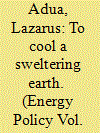| Srl | Item |
| 1 |
ID:
178486


|
|
|
|
|
| Summary/Abstract |
This paper constructs a two-stage sequential game model to shed light on the spillover effect of inward FDI on the efficiency of domestic firms in host countries. Our model shows that, given an optimal joint-venture policy made by foreign firms, the impact of the spillover effect of inward FDI is contingent upon the productivity gap between the domestic firms and foreign ones. In particular, we demonstrate that the spillover effect of inward FDI varies negatively with the productivity gap between domestic low-productivity firms and foreign firms but works in the opposite way for high-productivity firms. This suggests that once the productivity gap widens, the entry of foreign firms will increase the efficiency of high-productivity firms but reduce the efficiency of low-productivity firms. In support of our theoretical model, we provide robust empirical results by using the dataset of annual survey of Chinese industrial enterprises.
|
|
|
|
|
|
|
|
|
|
|
|
|
|
|
|
| 2 |
ID:
098613


|
|
|
|
|
| Publication |
2010.
|
| Summary/Abstract |
As technical efficiency improvement in energy use remains a touchstone measure to curb greenhouse gas (GHG) emissions, there is substantial concern about whether this approach can offset the large and expanding impacts of human actions. Critics contend that without adjustments to the prevailing consumptive lifestyle, energy efficiency improvement will generate only token reductions in GHG emissions. I address this concern by examining the extent to which technical efficiency improvement in energy use offsets the impacts of housing-related lifestyle on GHG emissions. I build from two perspectives, the physical-technical-economic models that consider energy efficiency improvement as a potent strategy to curb residential energy consumption, and the lifestyle and social-behavioral approach, which questions this view. The analyses reveal consistent positive relationship between lifestyle and energy consumption. The results also indicate that energy efficiency improvement has mixed effects on energy consumption. In fact, model-based figures show that technical efficiency improvement in energy use leads to slightly higher energy consumption if it is not accompanied by adjustments to lifestyle.
|
|
|
|
|
|
|
|
|
|
|
|
|
|
|
|